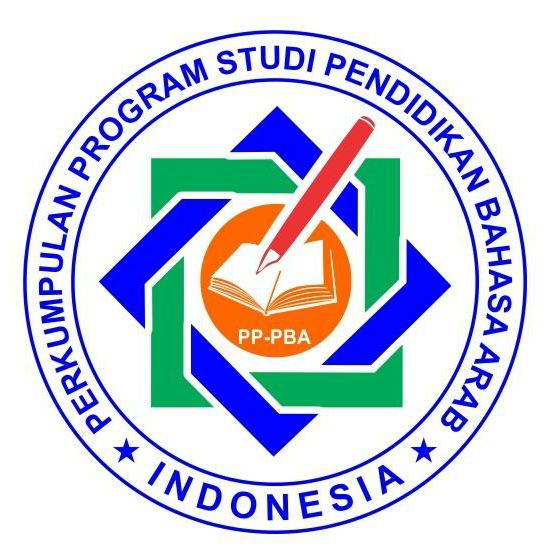Al-Tahlil al-Dalālī Lilafẓi al-Khairi fī al-Qur’ān al-Karīm ‘inda Wahbah al-Zuhailī
Semantic Analysis of the al-Khairi in the Holy Qur’an According to Wahba Al-Zuhaili
DOI:
https://doi.org/10.37680/aphorisme.v4i1.4193Keywords:
Analysis Semantics, lafz al-khair, Wahbah ZuhailyAbstract
The purpose of this research is to find out the semantics meaning and interpretation of the word al-khair according to Wahbah az-Zuhaili. This study uses a type of library research, where the discussion and interpretation of the verses of the Qur'an are studied from books and library documentation which has an object according to the study's title. The research method used is descriptive to collect comprehensive data on the data needed by the author, then compile it using primary and secondary data. The method of analysis is by analyzing and drawing conclusions and the values obtained after studying the verses of al-khair according to Wahbah az-Zuhaili. The result of the analysis semantics of al-khair words in terms of the Qur’an says that its action in the world is all good deeds between the servant and His Lord. At times, the term 'al-khair' in the Quran means all the worldly benefits that people desire.Then, it is followed by the meaning of reward, indicating the rewards from Allah. Other times, the term 'al-khair' comes with the meaning of one of the blessings in this world, and blessings refer to the rewards in the Hereafter.
References
Fadil, M. R. (2019). Konsep Preferensi Dalam Alquran: Studi Analisis Kata Khair Pada Ayat-Ayat Alquran. AL QUDS : Jurnal Studi Alquran dan Hadis, 3(2), Article 2. https://doi.org/10.29240/alquds.v3i2.926
Faiz, A. (2016). Perbandingan kata Khair, Hasan, dan Thayyib dalam Al-Quran berdasarkan Tafsir Ibnu Katsir, Jalalain, Departemen Agama dan Baghawy. Universitas Negeri Malang.
Fathurrochman, I., & Apriani, E. (2017). Pendidikan Karakter Prespektif Pendidikan Islam Dalam Upaya Deradikalisasi Paham Radikal. POTENSIA: Jurnal Kependidikan Islam, 3(1), 122. https://doi.org/10.24014/potensia.v3i1.2726
Fauziah, M. (2019). Konsep Kebaikan Dalam Perspektif Dakwah. Al-Idarah: Jurnal Manajemen dan Administrasi Islam, 3(1), Article 1. https://doi.org/10.22373/al-idarah.v3i1.5130
Hariyono, A. (2018). Analisis Metode Tafsir Wahbah Zuhaili Dalam Kitab Al-Munir. 1(1).
Sangadji, E. M. (2010). Metodologi penelitian: Pendekatan Praktis dalam Penelitian. ANDI.
ابن كثير الدمشقي, أ. ا. إ. ب. ع. (1998). تفسير القرآن العظيم. دار الكتب العلمية.
البغوي, أ. م. ا. ب. م. (1411). تفسير البغوي (معالم التنزيل)،. دار طيبة.
الزحيلي, و. (2009). التفسير المنير في العقيدة والشريعة والمنهج،. دار الفكر.
الكبيسي, ش. ن. ب. (2009). التفسير التحليلي للشطر الأول من سورة لآل عمران،. مركز البحوث والدراسات الإسلامية.
اللحام, ب. ا. (1422). وهبة الزحيلي العالم الفقيه المفسر. دار القلم.
زبيدي, س. (2019). علم الدلالة القرآنية منهجية التحليل الدلالي فى ألفاظ القرآن. كورنيا كلام سمستا للنشر والتوزيع.
ضيف, ش. (t.t.). المعجم الوسيط. مكتبة الشروق الدولية.
عمر, أ. م. (1998). علم الدلالة. عالم الكتب.
فارس بن زكريا, أ. ا. أ. ب. (1989). معجم مقايس اللغة الجزء الثاني. دار الفكر.
هارون, ع. ا. م. (1409). معجم ألفاظ القرآن الكريم الجزء الأول. الأميرية.
Downloads
Published
Issue
Section
License
Authors who publish with this journal agree to the following terms:
Authors retain copyright and grant the journal right of first publication with the work simultaneously licensed under a Creative Commons Attribution-NonCommercial 4.0 International License that allows others to share the work with an acknowledgement of the work's authorship and initial publication in this journal.
Authors are able to enter into separate, additional contractual arrangements for the non-exclusive distribution of the journal's published version of the work (e.g., post it to an institutional repository or publish it in a book), with an acknowledgement of its initial publication in this journal.
Authors are permitted and encouraged to post their work online (e.g., in institutional repositories or on their website) prior to and during the submission process, as it can lead to productive exchanges, as well as earlier and greater citation of published work.




.jpg)


